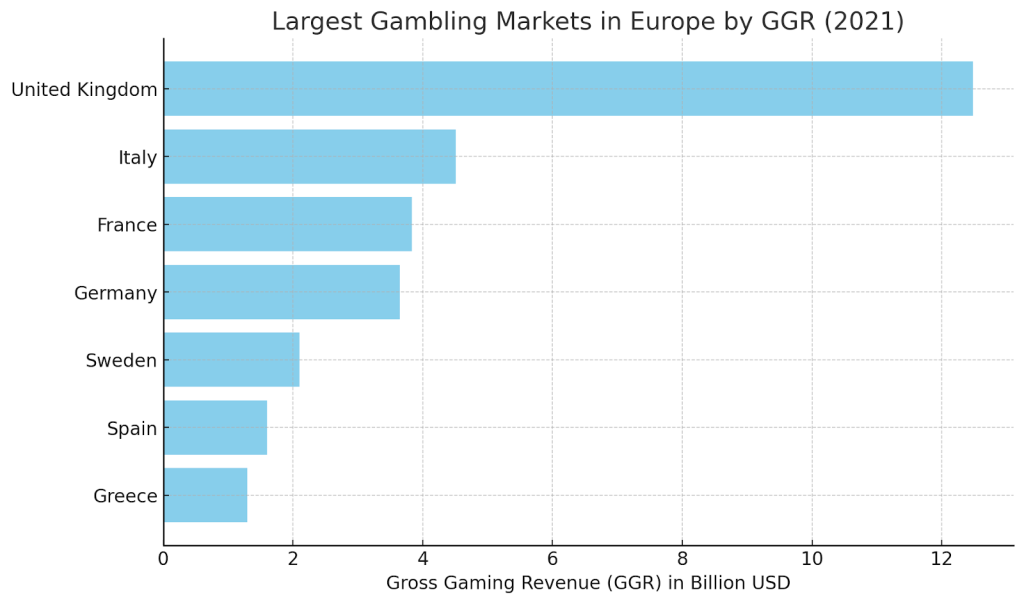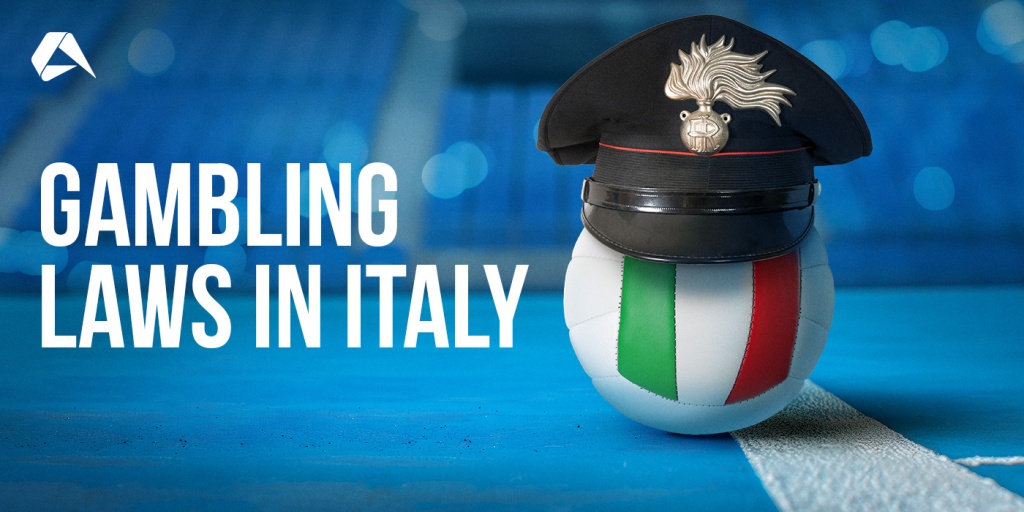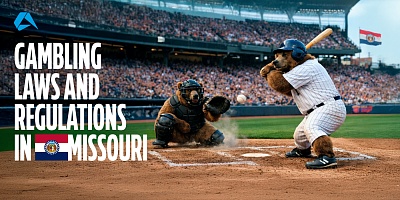Overview Gambling Laws and Regulations in Italy: Key Insights for Operators in 2025
Italy's iGaming sector is poised for significant changes by 2025, presenting lucrative opportunities for ambitious operators in one of Europe's largest and most structured markets. With a rich gambling history, Italy's Gross Gaming Revenue (GGR) reached €4.5 billion in 2022, projected to exceed €5.5 billion by 2025.
To enter, operators face stringent requirements: demonstrating two years of online gambling experience within the EEA and proving substantial financial stability. A physical office and servers hosted in Italy are mandatory for real-time monitoring. Crucially, strict adherence to the Decreto Dignità, banning all gambling advertising, and robust responsible gambling measures are essential.
Entry costs are rising significantly, with a new one-time licensing fee of €7 million for a nine-year licence expected by December 2024. Operators also face high tax rates on GGR (24% for sports betting, 25% for casino) and ongoing annual fees, including mandatory investment in responsible gambling campaigns.
The market is primarily overseen by the Agenzia delle Dogane e dei Monopoli (ADM). Despite challenges like high taxes and advertising bans, Italy’s large, engaged player base and stable regulatory framework offer substantial long-term rewards. Discover how to strategically navigate these complexities and capitalise on Italy's expanding iGaming landscape.
Italy's gambling sector is set to undergo significant changes by the end of 2024, with new market entry requirements primed to reduce competition and open bigger opportunities for ambitious operators. This shift could see only the most prepared and financially secure brands thrive, offering them access to one of Europe’s most lucrative iGaming markets.
With forecasts showing continued growth, operators with legal access will be positioned to take full advantage of Italy's substantial and engaged player base, along with the financial rewards it offers. In this article, you'll uncover the steps to market entry, key compliance factors, and strategies for success in Italy’s regulated environment.
Explore the details ahead to determine if Italy’s lucrative market aligns with your long-term ambitions and assess if your brand is ready to capitalise on Italy’s expanding opportunities.
History of Gambling in Italy
Few will be surprised to learn that gambling in Italy stretches as far back as ancient Rome. Even though betting on dice was technically outlawed in Roman society, it still flourished below the surface, becoming a widespread activity that no law could entirely suppress. For the locals of the time, taking a chance appears to have been an irresistible urge, even back then. And that appetite for risk and the excitement of a wager has never really disappeared.
Gambling went on to take on a more refined face during the Renaissance period. Noble courts became hubs of high-stakes card games, and lotteries quickly gained popularity. During this time, Italy introduced Lo Giuoco del Lotto d’Italia, a state-run lottery that still operates today. This was one of the early signs that the government saw value (for profit and control) in regulating gambling, a concept that would continue to evolve over time.
The real turning point for modern gambling laws came in 1948 when the first casinos were formally recognised. Ultimately, it was a signal that gambling was no longer just a cultural pastime but a legitimate industry. By 2006, the Legge Bersani (Bersani Law) brought online gambling into the modern era, legalising online wagering activities and creating a framework for operators to apply for licences. This move positioned Italy as one of the first European countries to embrace the digital transformation of gambling.
Timeline of Significant Events
Below is a timeline of key moments that have shaped Italy's gambling sector into what it is today.
1530: Launch of Lo Giuoco del Lotto d’Italia
The first state-sponsored lottery - still in operation today.
1861: Unification of Italy
Nationalisation of lotteries under the unified Italian state.
1945: Introduction of Sports Betting
Betting on football permitted through Sisal, which changed its name to Totocalcio three years later.
1948: Legalisation of Casinos
Marking the start of formal state-sanctioned gambling.
1948: Opening of Totip
State-run horse racing betting pool commences operations in Italy.
2003: Legalisation of Skill Games
Poker and other card games are recognised and legalised.
2006: Legge Bersani
Liberalisation of the gambling market paving the way for regulated online gambling and opening the market to foreign operators.
2010: Introduction of Online Casino Games
Online casinos permitted to operate within a regulated framework.
2011: Regulated Online Poker and Bingo
Expansion of online gambling regulation to include poker and bingo.
2018: Decreto Dignità (Dignity Decree)
Law banning all forms of gambling advertising to reduce addiction.
2020: New Gambling Tax Regime
Introduction of higher taxes on both retail and online gambling.
2023: Compliance with EU Directives
Revisions to gambling laws to align more closely with EU regulations on consumer protection and responsible gaming.
The Current Situation for iGaming
Today, gambling is a widely practised activity in Italian society. It is well-regulated and one of Europe's most highly structured jurisdictions, with retail and online sectors thriving. The groundwork for the current situation was laid in 2006 with the Legge Bersani, which liberalised the gambling market and opened it up to foreign operators, particularly online platforms. Over the years, Italy has steadily adapted its laws to align with EU standards, balancing market access with strict regulatory oversight.
Italian citizens can legally participate in a variety of gambling activities from the age of 18 onwards, including sports betting, lotteries, poker, bingo, and online casino games, all overseen by the Agenzia delle Dogane e dei Monopoli (ADM). For local and international operators, Italy remains a mature and well-regulated market, though, like all mature markets, both retail and online operators must obtain licences to offer services in the country. However, the market remains highly competitive, making it especially important for new entrants to provide unique and innovative services.
Italy’s well-controlled gambling environment rewards creativity, making it the perfect market for operators who can bring fresh ideas and cutting-edge solutions to the table. Those approaching this market with a vision beyond the ordinary will find themselves uniquely positioned. It’s not just about the games or technology but also about understanding the nuances of the Italian player base and offering an experience that feels tailor-made. The real winners will be those who can marry innovation with cultural insight, creating something that doesn’t just meet expectations but redefines them.
Requirements for Entering the Italian Market
Entering the Italian online betting market can be a highly rewarding venture for international operators, but it requires careful navigation of Italy's strict environment. Below is an outline of the essential actions operators must take in preparation for legal entry.
Meet the Experience Requirement
To apply for an Italian gambling licence, international operators must first demonstrate at least two years of experience managing online gambling services within the European Economic Area (EEA). This rule ensures that only operators with a proven track record can enter the market.
Prepare Financial Documentation
Operators need to prove their financial stability. This involves paying a licensing fee and demonstrating enough liquidity to cover operational costs and liabilities. This information must be presented in a comprehensive financial report.
Establish a Local Presence
Italian law requires all gambling operators to have a physical office within the country. You’ll need to establish a local business entity and register it with Italian authorities as part of the licensing process.
Host Servers In Italy
International operators are required to host their gambling servers in Italy. This allows Italian authorities to monitor operations in real time and ensures the protection of player data. Working with a local data centre or setting up your own infrastructure will be necessary.
Hire Local Legal Experts
Italy’s gambling laws are complex and subject to frequent updates. Operators must employ or engage with local legal experts specialising in gambling regulations to stay compliant. This helps to guide you through legal requirements such as tax obligations, anti-money laundering policies, and the Decreto Dignità (advertising law).
Implement Responsible Gambling Measures
New entrants must comply with Italy’s responsible gambling laws, such as player self-exclusion options, setting clear betting limits, and ensuring that underage individuals cannot access gambling services. Regular reporting to the ADM on your responsible gambling practices is mandatory.
Understand and Adhere to Advertising Laws
Italy's Decreto Dignità has completely banned gambling-related advertising, including sponsorship deals. Operators must be creative in their marketing efforts while strictly adhering to these regulations. Non-compliance can result in severe penalties, including licence revocation.
Comply with Taxation Laws
International operators must pay taxes on their Gross Gaming Revenue (GGR), with online sports betting taxed at 24%. Keeping up with tax payments and submitting regular financial reports is essential to maintaining a valid licence.
Implement AML and Data Protection Protocols
Italy enforces strict anti-money laundering (AML) regulations and data protection requirements. Operators must comply with the EU General Data Protection Regulation (GDPR), ensuring that player information is secure and financial transactions are legitimate. Regular audits may be conducted to verify compliance.
Set Up Player Verification Systems
Before offering services, operators must implement a comprehensive Know Your Customer (KYC) process. This includes verifying players' identities, ages, where they reside and performing financial background checks to prevent fraud.
Final Steps
Once these steps are complete, operators can apply for an Italian gambling licence by submitting an application to the ADM for approval. This includes a comprehensive review of your legal, financial, and operational preparedness.
Entry Costs for Online Operators in 2025
By 2025, Italy will implement significant changes to its online gambling licensing framework. The current licences will expire by the end of 2024 under the provisions of the Italian Budget Law 2023, which extended the existing licences until December 31, 2024.
A new tender process will be launched to award fresh licences, making it essential for operators considering market entry to fully understand the expected costs involved.
The publication of the tender has not yet occurred. A further extension of the licences for 2024 is expected, subject to the payment of an amount to be determined.
The regulator has also introduced the registration to PVR or online agents (Punti vendita ricarica), which has not been regulated until now but will be part of the new regulation with an annual fee.
Application and Licence Fees
Under the new framework governed by the reorganised Remote Gambling Act, operators seeking to enter the Italian market must pay a one-time licensing fee of €7 million for a nine-year licence covering sports betting and casino games. This fee applies regardless of the type of games offered. Licences are expected to be awarded by December 2024, and the tender process will last 60 days. This represents a substantial increase compared to the previous fees.
Proof of Financial Stability
To ensure financial stability, operators must meet specific financial requirements. These include providing guarantees and liquidity evidence, typically in the form of a financial bond, to cover player winnings and obligations. Italy’s gambling regulatory authority will closely monitor this aspect.
Gambling Taxes
Online sports betting operators are subject to a 24% tax on GGR, while online casino operators are subject to a 25% tax on GGR. These taxes must be paid in addition to the annual licence fee, making Italy’s tax environment relatively high compared to other markets.
Ongoing Compliance and Licence Renewal Costs
Operators must pay an annual fee of 3% of their GGR, net of gambling taxes. Additionally, they must invest 0.2% of their GGR (net of taxes) in responsible gambling campaigns, with a cap of €1 million annually. The investment is mandatory and aimed at encouraging a responsible gambling policy.
Leading Regulatory Authorities
Italy’s gambling market is tightly regulated, with several key authorities overseeing the compliance and operations of online and retail gambling activities. These regulatory bodies ensure domestic and international operators adhere to Italian laws and protect consumers. Below are the most influential authorities that shape the day-to-day operations of gambling operators within Italy.
Agenzia delle Dogane e dei Monopoli
The Agenzia delle Dogane e dei Monopoli (ADM) is the main regulatory body overseeing gambling activities in Italy. It manages licensing, compliance, and enforcement of laws for both retail and online gambling. The ADM ensures that all operators adhere to Italy’s strict legal framework, monitors for irregularities, and issues penalties for violations. For international operators, ADM is the primary point of contact, and maintaining compliance with their guidelines is necessary for smooth and uninterrupted operations.
Guardia di Finanza (Financial Police)
The Guardia di Finanza enforces financial laws, including anti-money laundering (AML) regulations within the gambling industry. Operators must implement strict AML policies and cooperate with the Guardia di Finanza to prevent illegal financial activities. This authority conducts regular audits and investigations to ensure compliance with Italian and EU AML directives, making it a significant player in maintaining market integrity in Italy.
Comitato per la Programmazione e il Coordinamento delle Attività di Educazione Finanziaria
Although primarily focused on financial education, this committee plays an important role in ensuring that players are aware of responsible gambling practices. It works closely with gambling operators to promote education on the risks associated with gambling, supporting the enforcement of responsible gaming measures. Ultimately, this body ensures that operators comply with educational outreach programmes and how they communicate with players about risks and responsible gambling.
Autorità per le Garanzie nelle Comunicazioni (AGCOM)
AGCOM, the Italian Communications Authority, enforces advertising laws in the gambling sector. Since the introduction of the Decreto Dignità in 2018, AGCOM has played a pivotal role in monitoring and penalising illegal gambling advertisements. It ensures operators comply with Italy’s advertising restrictions, especially the total ban on gambling-related promotions. International operators must work within AGCOM’s guidelines to avoid hefty fines and ensure their marketing strategies comply with local regulations.
Opportunities and Future Outlook
Italy’s gambling market provides ample opportunities for international operators seeking strong betting markets for expansion. For those ready to make their mark, Italy has a population of over 60 million, many of whom have an enthusiastic passion for online betting. Moreover, the nation offers more than just a large player base. It’s a market with a deep cultural connection to games of chance and sports betting. Today, Italy is one of Europe's largest and most profitable markets, second only to the UK, generating €4.5 billion in GGR in 2022. Analysts predict that by 2025, this figure could surpass €5.5 billion.

What sets Italy apart is its long-standing commitment to regulation, creating a well-organised system where operators can flourish. The Agenzia delle Dogane e dei Monopoli provides clear licensing rules, allowing operators to focus on delivering world-class gaming experiences. As one industry expert aptly put it,
Italy’s regulatory environment isn’t just a hurdle - it’s a stamp of trust that makes players feel safer and more engaged.
Moreover, while it is true that tax rates in the country are higher than average, the market’s stability offers long-term rewards. Operators who can balance compliance with innovation will find themselves in a unique position to attract Italy’s players and bettors, especially as mobile gaming and live betting continue to surge in popularity.
Looking ahead, Italy is racing to embrace current trends in esports betting and live-streamed games, giving forward-thinking operators a chance to lead the next wave of betting opportunities. With the right strategy, market entry looks incredibly bright, offering endless possibilities for those ready to seize them.
Market Advantages
-
Large player base - over 60 million with strong engagement.
-
Stable regulatory framework - ensuring market security.
-
Growing market - projected to surpass €5.5 billion by 2024.
-
Mobile gaming usage - and popularity.
-
Diverse preferences - for a variety of online gambling options.
Market Disadvantages
-
High than average tax rates on GGR - impacting profitability.
-
Advertising restrictions - with a complete ban in place.
Licence Application Process
iGaming operators wishing to apply for a gambling licence in Italy must submit their application through the Agenzia delle Dogane e dei Monopoli (ADM), Italy’s official regulatory body for gambling. The application is completed via the ADM’s online portal, where operators must provide detailed financial, legal, and operational documentation. This includes proof of liquidity, local presence, and compliance with responsible gambling protocols.
After submitting an application, operators undergo a comprehensive review by the ADM, who assess and verify the documentation supplied. They also evaluate the operator’s IT infrastructure, ensuring all systems allow real-time monitoring through servers hosted in Italy. When the review is complete, operators must pay the €7 million licence fee, valid for nine years. Proof of a local office is required, along with compliance with ongoing financial obligations such as the 3% annual GGR fee and a 0.2% GGR allocation for responsible gambling campaigns.
If granted a licence, operators must continue adhering to Italian regulations, including regular audits, reporting requirements, and compliance with advertising restrictions under the Decreto Dignità. Non-compliance with these ongoing obligations could result in fines or the revocation of the licence. To maintain operational success, operators must ensure they fully align with ADM regulations throughout the licence period.
Take the first step into Italy’s iGaming market
Italy's online gambling market is poised for tremendous growth. With regulations evolving and a passionate player base growing, there’s never been a better moment to get licensed. Traversing the complexities of sportsbook technology, Italian regulations, taxes, and licensing may seem overwhelming, but with expert guidance, your business can experience sustained growth and thrive.
With deep industry expertise in Italy, Altenar is here to help you take the right steps and turn challenges into wins. Start your journey in Italy’s iGaming market today by contacting our specialists for expert guidance and tailored solutions.













